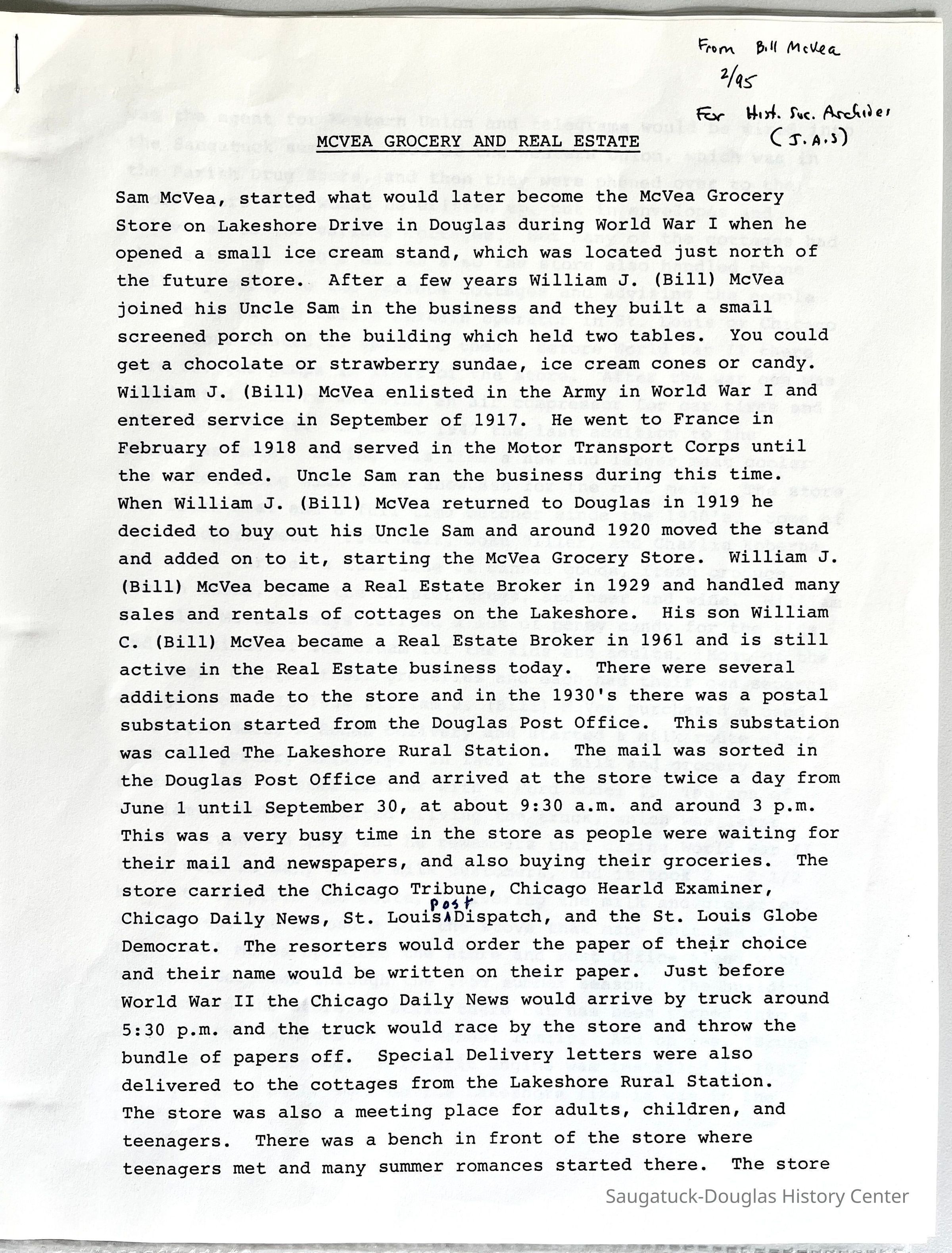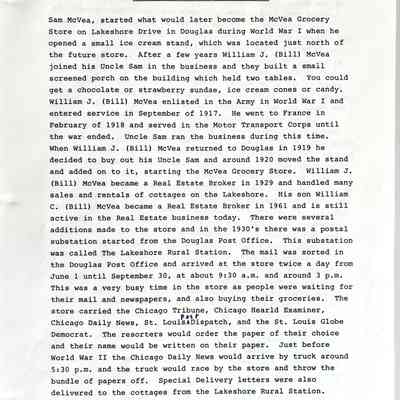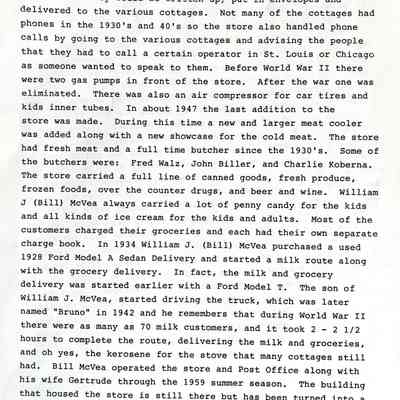McVea Grocery and Real Estate

Page one of two
Sam McVea, started what would later become the McVea Grocery Store on Lakeshore Drive in Douglas during World War I when he opened a small ice cream stand, which was located just north of the future store..After a few years William J. (Bill) McVea joined his Uncle Sam in the business and they built a small screened porch on the building which held two tables. You could get a chocolate or strawberry sundae, ice cream cones or candy. William J. (Bill) McVea enlisted in the Army in World War I and entered service in September of 1917. He went to France in February of 1918 and served in the Motor Transport Corps until the war ended. Uncle Sam ran the business during this time. When William J. (Bill) McVea returned to Douglas in 1919 he decided to buy out his Uncle Sam and around 1920 moved the stand and added on to it, starting the McVea Grocery Store. William J. (Bill) McVea became a Real Estate Broker in 1929 and handled many sales and rentals of cottages on the Lakeshore. His son William C. (Bill) McVea became a Real Estate Broker in 1961 and is still active in the Real Estate business today. There were several additions made to the store and in the 1930's there was a postal substation started from the Douglas Post Office. This substation was called The Lakeshore Rural Station. The mail was sorted in the Douglas Post Office and arrived at the store twice a day from June 1 until September 30, at about 9:30 a.m. and around 3 p.m. This was a very busy time in the store as people were waiting for their mail and newspapers, and also buying their groceries. The store carried the Chicago Tribune, Chicago Hearld Examiner, Chicago Daily News, St. Louis Post Dispatch, and the St. Louis Globe Democrat. The resorters would order the paper of their choice and their name would be written on their paper. Just before World War II the Chicago Daily News would arrive by truck around 5:30 p.m. and the truck would race by the store and throw the bundle of papers off. Special Delivery letters were also delivered to the cottages from the Lakeshore Rural Station. The store was also a meeting place for adults, children, and teenagers. There was a bench in front of the store where teenagers met and many summer romances started there. The store

